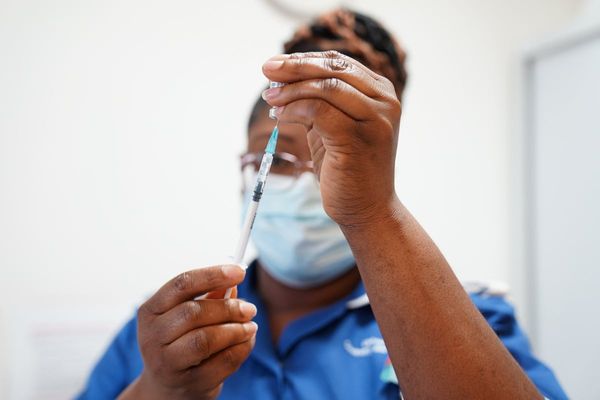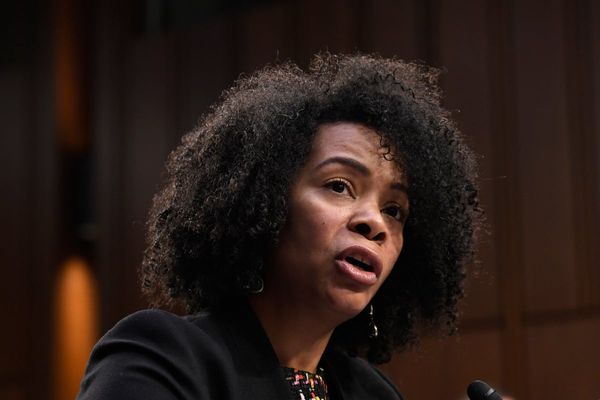Another documentary about Diana, Princess of Wales. What more is there to say — or be revealed — at this point? Not much. But “The Princess” on HBO, from director Ed Perkins, takes a unique approach: The film assembles news coverage that spans nearly two decades, from her 1981 engagement to Prince Charles to her 1997 car accident death in Paris. The end result is not so much the story of Diana (even though it obviously is) but a look at the telling of her story — as the media told it. Which means there are no present-day talking heads inserted along the way. Just clips stitched together chronologically, but in an order that becomes its own commentary.
Seeing so much Diana news coverage assembled in one place lays bare the cynical impulses, the blundering PR instincts and the misplaced allegiance to the idea of the monarchy itself. But it’s also a reminder of how the central players comported themselves through it all.
The British royals are put under the microscope by the press. But not really. Not when it matters. Lurking behind every headline about Diana is the unspoken pact that her son, Prince Harry, would later allude to in his 2021 interview with Oprah Winfrey: That very real and problematic stories about the monarchy will be left untouched — or handled with the most delicate of euphemisms — and in return the royal family will play along and, when one is available, provide a sacrificial offering.
It’s a deeply compromised and jumbled way of covering public figures who, as the complaint often goes, live off the public dole while also possessing massive personal wealth.
That’s the background context that gives the documentary its frisson.
“What do you think you’ve got in common?” Charles and Diana are asked upon their engagement. It’s an innocuous enough thing to ask, but they both sort of guffaw uncomfortably and then Charles says, “What a difficult question!” and punts to Diana. What a weaselly move: A 32-year-old man who has grown up in this world acts as if it were brand new to him, so he pawns off the question to his 19-year-old fiancee, who has zero media training and has been forced to learn as she goes. It’s one of many early clues this would not be a supportive marriage for her. At any rate, she says the two share a sense of humor. I could see that, actually!
There’s footage of people celebrating the couple’s pending nuptials, over which a reporter intones: “The royal family may be an anachronism in the dismal 1980s, but it’s an anachronism the British clearly love.” Another reporter says: “At times like this, Britain is at its very best. No matter what concerns us, like, uh, having no money, no jobs, riots in the streets, we’re doing our bit to celebrate the regal pair.” Just when you think the emptiness of royal coverage has been exposed entirely, another reporter says of the young bride-to-be: “Her father, her uncle Lord Fermoy and others have even vouched for her virginity.”
Flash forward to the birth of their first child. Princess Anne is traveling in New Mexico and as she strides purposefully out of a building, she’s followed by a scrum of reporters and photographers, leading to the following exchange:
Reporter: “What about Diana?”
Anne: “I don’t know, you tell me.”
Reporter: “Your reaction to her having a son?”
Anne: “I didn’t know she had one.”
Reporter: “This morning.”
Anne (flatly): “Oh. Good.”
Flash forward to Charles and Diana’s 1983 Australian tour. “You can’t give pictures of him away,” a photographer complains.
It’s obvious that it never occurred to Charles that he might marry someone with a charisma all her own — or a charisma she might grow into — and what it would mean when that charisma was given a world stage.
But if your life is predicated on making public appearances and needing adulation at those appearances … well …. maybe it’s worth asking if it’s time to call the whole thing off. And by the whole thing, I mean the monarchy itself.
Flash forward to a later interview with the couple.
Charles: “I suspect most husbands and wives find that they often have arguments.”
Diana: “But we don’t!”
Charles: “But occasionally we do.”
Diana: “No, we don’t!”
I wonder if he saw her not agreeing with everything that came out of his mouth as “arguing” — how often does the heir to the British throne hear the word “no”? — whereas she saw it merely as having her own point of view and what’s the big deal about that anyway?
The parallels to the British media’s treatment of Prince Harry’s wife, Meghan Markle, are obvious. The film is making this point, albeit obliquely. There is something deeply toxic in the expectations the royal family has about how it should be treated (everyone outside their circle is an annoyance but keep the money spigot flowing!). But it’s also hard to make sense of the way the media toggles between obsequiousness and outright cruelty and invasions of privacy. Get a life, you think!
Diana’s very presence was raw meat for a ravenous press pack. It’s frightening to see it play out. Eventually we see her adopting a coping mechanism that, ironically, Charles talks about in an earlier interview. Here’s what he says: “If you don’t work out in your own mind some sort of method for existing and surviving this kind of thing, you would go mad I think.” And so she became strategic and intentional about how she interacted with the media, rather than simply letting it happen to her. She was criticized as being manipulative for this, as if nothing less than full submission was acceptable. Exploitation, certainly in the view of the tabloid press, was a one-way street. How dare she think otherwise.
By 1993, the marriage had disintegrated entirely and Diana gave a speech in which she talked about pulling back from public life. She always knew there would be interest in her, she says, but she never anticipated the “extent to which it would affect both my public duties and my personal life in a manner that’s hard to bear.” And so, she announces, she’s going to seek out a better balance “combining a meaningful public role with hopefully a more private life.”
One commentator’s response: “I think she’s very close to being a monster.”
The footage of her throughout the ‘80s and ‘90s shows anything but. You watch her talking to people during various visits and she looks fun to be around, relaxed and comfortable in her own skin and interested in the person across from her.
More than anything, “The Princess” is a documentary that makes you think about its editing choices. There’s a curious lack of clarity or transparency around many of the unidentified voices (from broadcasters, presumably) that can be heard speaking over the assembled images and you’re left to wonder if this commentary originally accompanied said footage or if Perkins, the director, is mixing and matching.
For me, the larger takeaway is the absence of documentaries that challenge perceptions about, and the validity of, the monarchy itself. It’s easier, I suppose, to make another film about Diana.
I think that’s the wrong decision. Because even if the Windsors were nicer people, the institution itself is corrupt, from the still devastating effects of colonization done in its name to hidden financial schemes (the disclosures in the Paradise Papers alone, but that’s just the tip of the iceberg) to the queen’s own son paying a multimillion-dollar settlement to a sexual abuse accuser. Why would there be need to keep Prince Philip’s will sealed for 90 years? Ninety years! How did a person who was penniless when he married amass millions as the queen’s consort?
If you search the internet for “British royal family exempt” all kinds of stories come up and you realize that when the British media does cast a critical eye on how the monarchy functions, the stories tend to be one-and-done. “Buckingham Palace banned ethnic minorities from office roles” reads one recent headline, a revelation quickly jettisoned from the news cycle. That’s the pattern. “Prince Charles vetted laws that stop his tenants buying their homes,” reads another. “If the Queen has nothing to hide, she should tell us what artifacts she owns,” reads yet another: “The royal family has a history of acquiring looted objects, so its exemption from a law protecting cultural heritage raises questions.”
Imagine if a documentary filmmaker attempted to compile even a fraction of the many inequities, hidden finances and causes for concern into a single film that outlines, in detail, the true story behind the rancid fairy tale.
———
'THE PRINCESS'
2.5 stars (out of 4)
Running time: 1:49
How to watch: 8 p.m. ET Saturday on HBO
———







